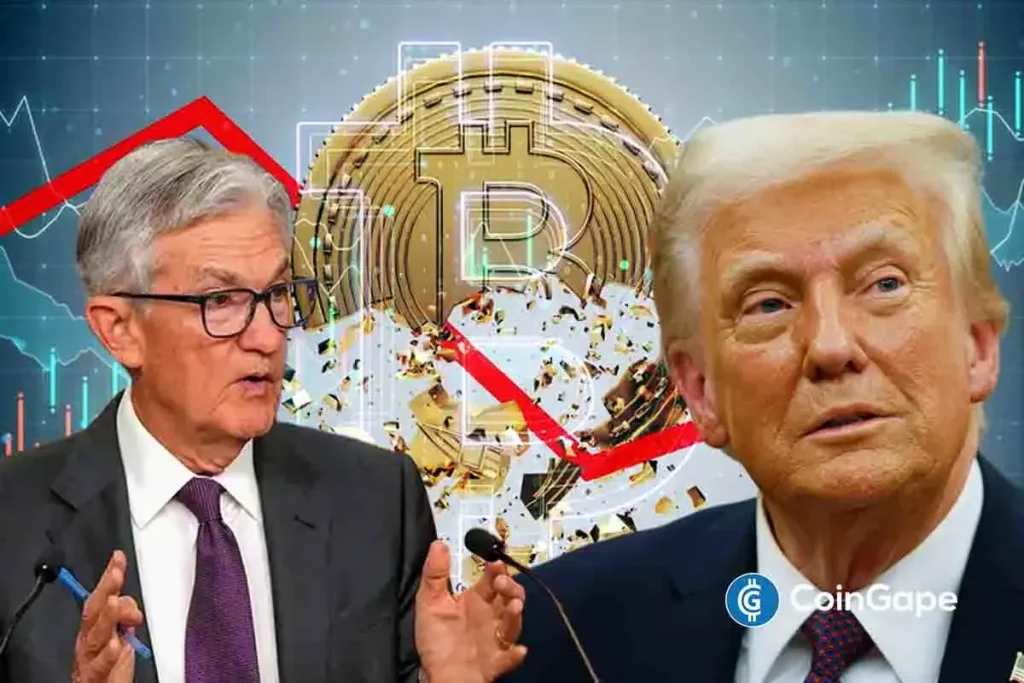Traders Bet Against Trump’s Decision to Remove Jerome Powell: A Look at the Implications for the Crypto Market
In recent weeks, traders on the prediction platform Polymarket have placed their bets against the likelihood of U.S. President Donald Trump removing Federal Reserve Chair Jerome Powell this year. Data from Polymarket indicates there is currently only a 19% chance that such an event will occur in 2023. This skepticism among traders has persisted despite ongoing criticisms voiced by Trump regarding Powell’s leadership and monetary policy decisions. Traditionally, indications of leadership changes at the Federal Reserve carry significant weight, particularly for financial markets, including cryptocurrencies. As Powell continues to resist calls for interest rate cuts, traders remain steadfast in their belief that he will retain his position.
Donald Trump has been vocal about his discontent towards Powell and the Federal Reserve’s current monetary policy, notably criticizing the Fed Chair for being "too late and wrong" in his decisions. Recently, Trump reflected on this sentiment, insisting that the removal of Powell “cannot come fast enough.” Such remarks come in the context of the European Union preparing to cut interest rates for the seventh time, creating a sense of urgency for Trump as he seeks similar measures in the U.S. economy. In previous meetings, Trump has reportedly discussed potential candidates to succeed Powell, including Kevin Warsh, highlighting the ongoing tension surrounding the Fed leadership.
The dynamics surrounding Powell’s tenure as Fed Chair are vital for the cryptocurrency market. Historical trends have shown that Bitcoin and altcoins are significantly influenced by changes in monetary policy rather than other macroeconomic indicators. Consequently, if Trump were to successfully push for Powell’s removal or if the Fed Chair voluntarily resigned, it could be seen as a bullish signal for the crypto markets. Traders are closely monitoring this situation, especially given Powell’s firm stance against cutting interest rates in the near future. His recent statements suggest a willingness to maintain current rates while observing inflation impacts resulting from Trump’s tariffs.
Market stakeholders are increasingly turning their attention to Kevin Warsh, who is seen as more favorable towards cryptocurrency. Warsh’s history suggests a potential openness to embracing digital currencies, which contrasts sharply with Powell’s current policies. However, it’s important to note that Warsh has also advocated for Central Bank Digital Currencies (CBDCs), raising questions about how aligned his views would be with Trump’s own policies, particularly in light of the executive order the president signed to prohibit CBDC creation. As such, the potential for Warsh’s appointment could bring about a new era for digital assets under a more crypto-friendly regime, but with caveats regarding his stance on monetary innovation.
The scenario illustrates a complex interaction between political influence and market reactions. Investors in cryptocurrencies are particularly attuned to any shifts in policies from the Federal Reserve, as these can directly impact liquidity and the broader economic environment. Powell’s current approach, characterized by a cautious reluctance to lower interest rates, is causing friction in financial circles. A change in leadership at the Fed could unleash a wave of volatility and speculation in the crypto markets, especially as traders weigh the implications of different monetary policies.
In conclusion, while traders on Polymarket currently express skepticism about Trump removing Jerome Powell from his position, ongoing debates and dissatisfaction with Powell’s decisions underscore a pivotal moment for monetary policy in the U.S. The intersection of politics and finance continues to evolve, with ramifications that extend beyond traditional markets into the realm of cryptocurrencies. As developments unfold, both traders and investors will need to stay vigilant in assessing how these changes may influence the market landscape and reshape strategies in an ever-changing economic climate. The outcome of this situation not only influences U.S. monetary policy but also shapes the trajectory of digital currencies at a time when innovation in the financial sector is paramount.


